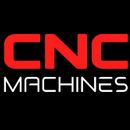The 9 Essential Factors for a Successful CNC Machine Shop

The 9 Essential Factors for a Successful CNC Machine Shop
CNC (Computer Numerical Control) machining has revolutionized the manufacturing industry, enabling high precision and efficiency in the production of complex parts and components. For a CNC machine shop to thrive, several critical factors must be considered and optimized. In this article, we will explore the nine essential factors that contribute to the success of a CNC machine shop, along with actionable steps for each factor.
1. Quality Machinery and Equipment
Quality machinery is the backbone of a CNC machine shop. Investing in reliable, high-performance machines ensures that operations run smoothly and efficiently, leading to better productivity and reduced downtime.
How to Ensure Quality Machinery:
- Research and Selection: Choose reputable brands known for durability and precision in CNC machining.
- Regular Maintenance: Establish a maintenance schedule to keep machinery in optimal condition.
- Invest in Upgrades: Upgrade to the latest technology as needed to stay competitive.
2. Skilled Workforce
A skilled workforce is essential for operating CNC machines effectively. Employees must be trained not only in the technical aspects of operating machinery but also in programming and troubleshooting.
How to Build a Skilled Workforce:
- Training Programs: Implement regular training sessions on CNC operation, programming, and maintenance.
- Certifications: Encourage staff to obtain relevant certifications in CNC machining and programming.
- Mentorship: Pair experienced operators with less experienced staff for hands-on learning.
3. Effective Programming and Software
Efficient programming is key to maximizing the capabilities of CNC machinery. Advanced software solutions for CAD (Computer-Aided Design) and CAM (Computer-Aided Manufacturing) are essential for creating precise designs and generating effective machining instructions.
How to Optimize Programming:
- Invest in CAD/CAM Software: Choose user-friendly and powerful software solutions for design and machining processes.
- Standardize Procedures: Create standard operating procedures (SOPs) for programming to ensure consistency and quality.
- Test and Validate: Regularly test programs in a simulation environment before running them on actual machines.
4. Material Selection and Management
Selecting the right materials is crucial for producing quality parts. Proper material management ensures that the necessary materials are always available and suited to the production process.
How to Manage Material Selection:
- Supplier Relationships: Build strong relationships with reliable material suppliers for consistent quality and availability.
- Material Inventory: Maintain an organized inventory system to track material usage and reorder points.
- Sourcing: Evaluate different materials based on cost, machinability, and application requirements.
5. Quality Control Processes
Implementing rigorous quality control measures is vital for maintaining high production standards. Regular inspections and tests can help identify defects early in the manufacturing process.
How to Implement Quality Control:
- Inspection Protocols: Develop and follow rigorous inspection protocols at various stages of production.
- Use Precision Tools: Invest in measurement tools like Coordinate Measuring Machines (CMM) for accurate quality checks.
- Continuous Improvement: Analyze inspection data to identify trends and areas for improvement.
6. Lean Manufacturing Principles
Adopting lean manufacturing principles can significantly enhance the efficiency of a CNC machine shop. This methodology focuses on minimizing waste and optimizing workflow to increase overall productivity.
How to Implement Lean Principles:
- Map Processes: Use value stream mapping to visualize and analyze current workflows.
- Eliminate Waste: Identify and eliminate non-value-added activities in production.
- Continuous Training: Train employees on lean principles and encourage them to suggest improvements.
7. Customer Communication and Service
Effective communication with customers is essential for understanding their needs and ensuring satisfaction. Providing exceptional customer service can lead to repeat business and referrals.
How to Enhance Customer Communication:
- Regular Updates: Keep customers informed about project status, timelines, and any potential issues.
- Feedback Mechanism: Implement a feedback system to gather customer insights and improve services.
- Responsive Support: Offer timely and effective customer support to address inquiries and concerns.
8. Sustainability Practices
Incorporating sustainable practices into operations is becoming increasingly important for manufacturers. CNC machine shops can adopt eco-friendly practices to minimize their environmental impact.
How to Adopt Sustainable Practices:
- Energy Efficiency: Invest in energy-efficient machines and technologies to reduce energy consumption.
- Waste Reduction: Implement recycling programs for scrap materials and minimize waste generation.
- Eco-friendly Materials: Consider using sustainable materials and processes in production.
9. Technology Integration
Staying ahead in the competitive CNC machining industry requires continuous investment in technology. Integrating advanced technologies can enhance efficiency and reduce operational costs.
How to Integrate Technology:
- Automation: Invest in automated systems for material handling, machining, and inspection to increase efficiency.
- IoT Implementation: Utilize IoT devices to monitor machine performance and gather data for analysis.
- Stay Informed: Keep abreast of the latest technological advancements in CNC machining and be willing to adapt.
Conclusion
Success in a CNC machine shop hinges on a combination of quality equipment, skilled personnel, effective programming, and robust processes. By focusing on these nine essential factors and implementing the actionable steps outlined, manufacturers can optimize their operations, enhance productivity, and ultimately achieve long-term success. Embracing these elements will not only lead to improved efficiency and profitability but also establish a reputation for excellence in the CNC machining industry.


